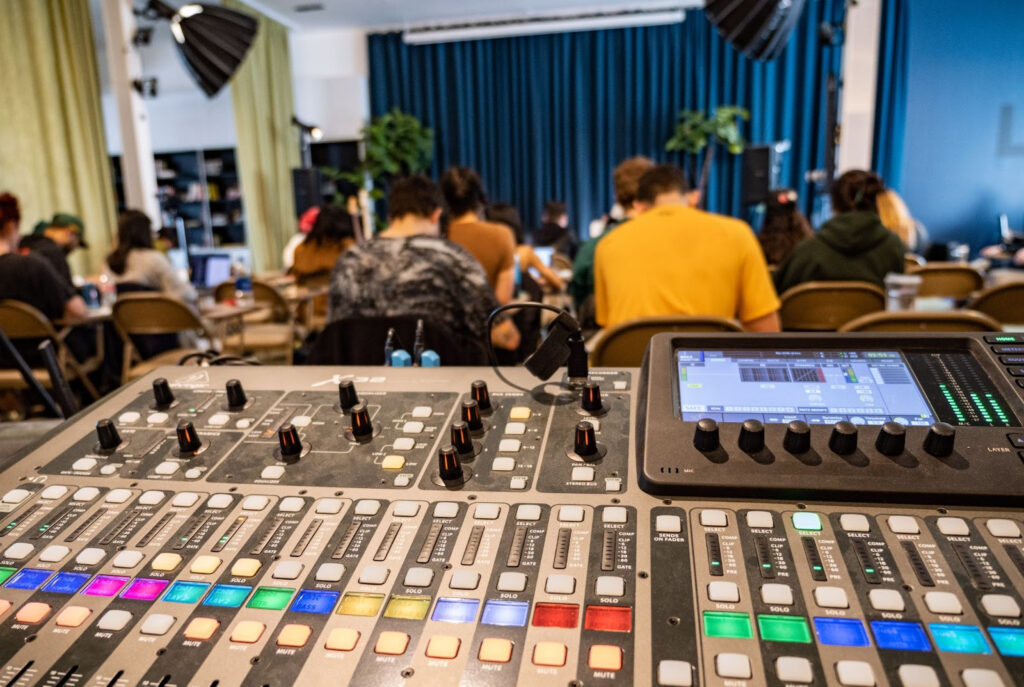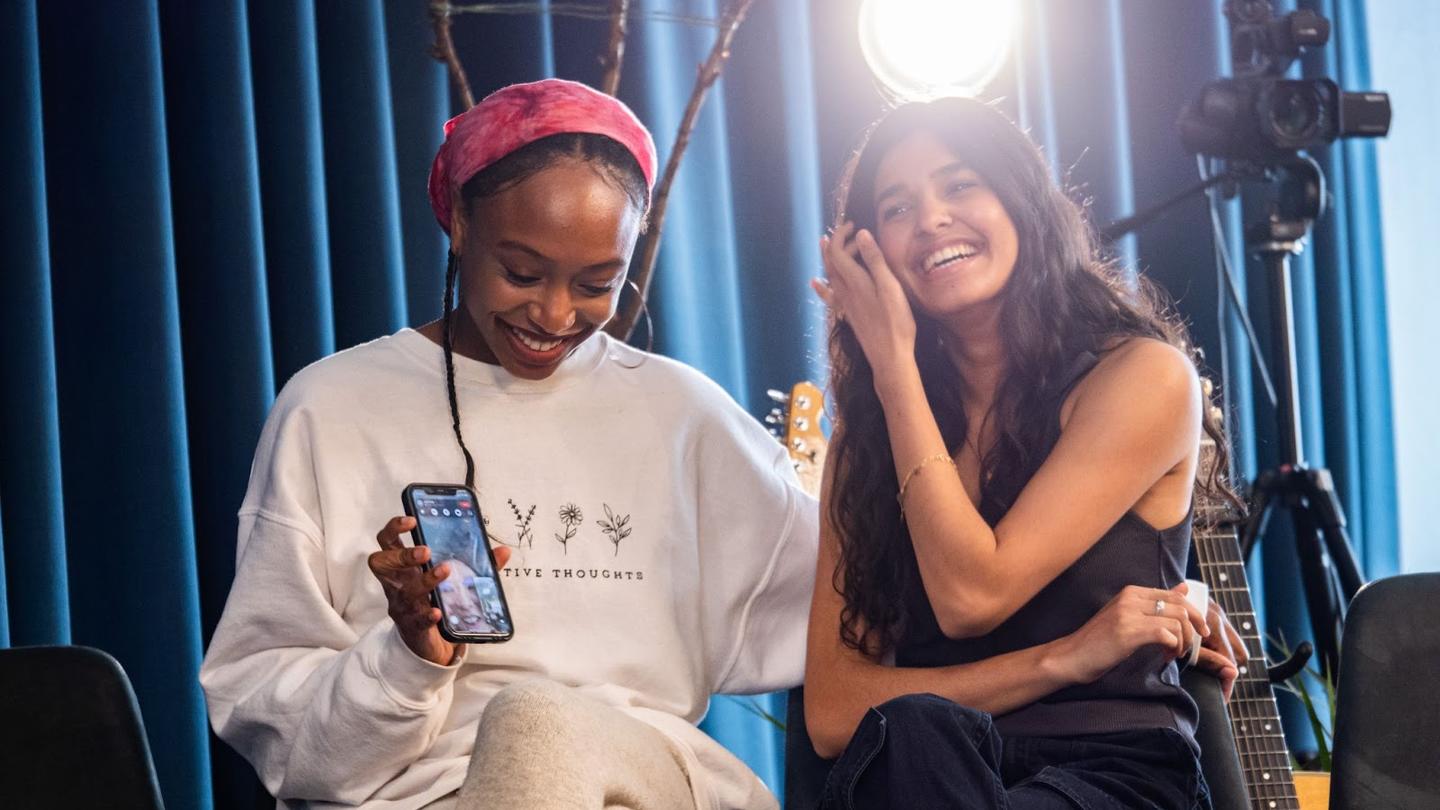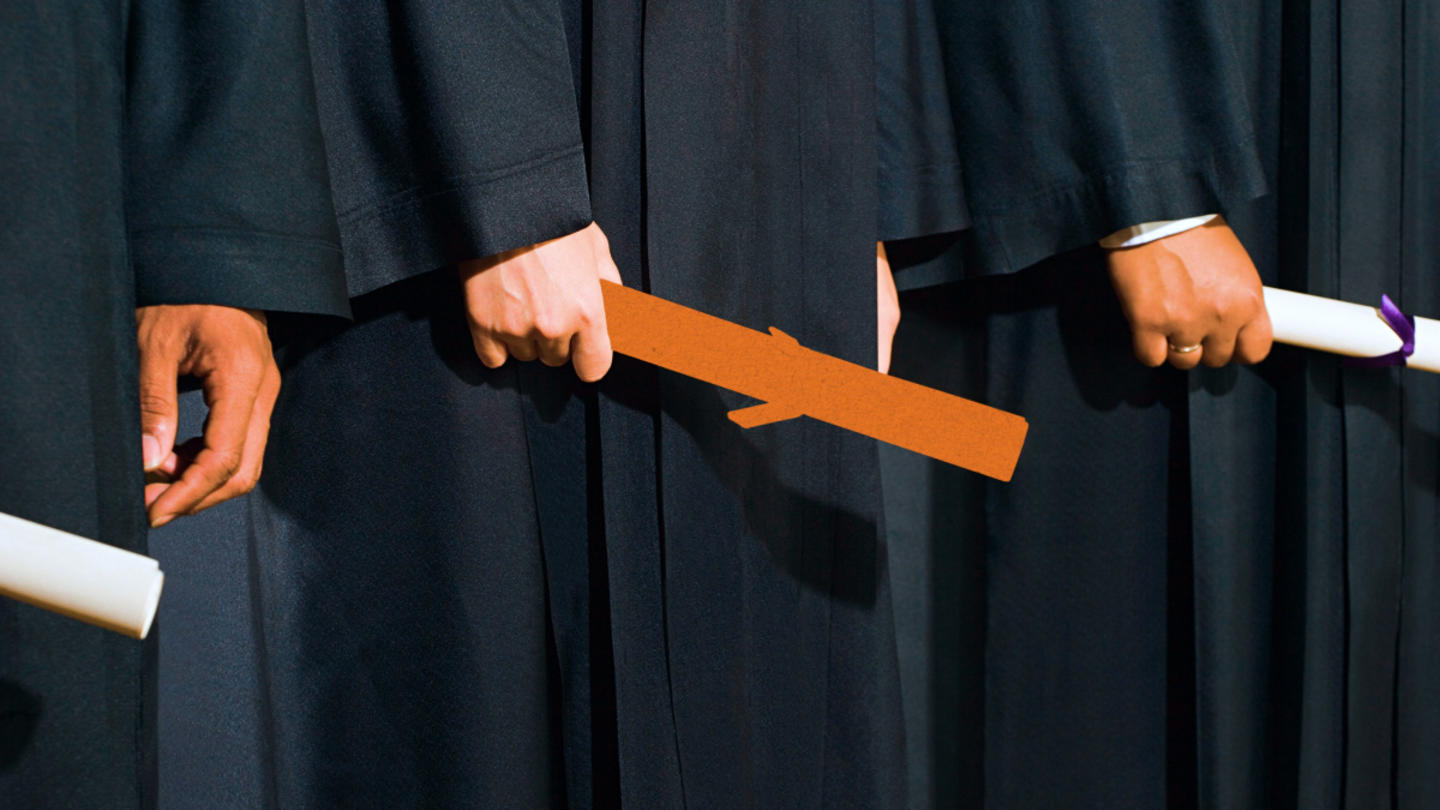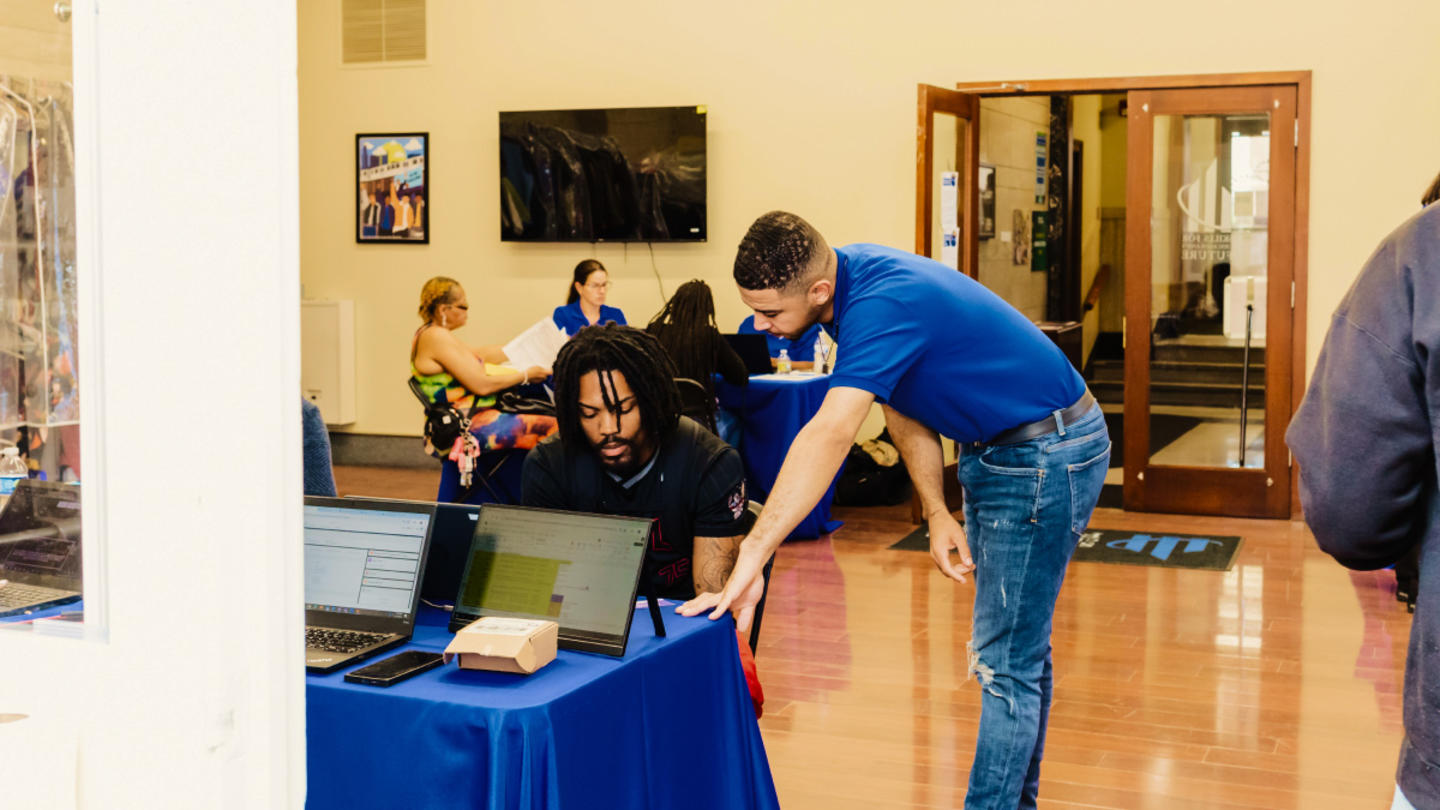For Danny Sanchez, the director of operations at Los Angeles Academy for Artists and Music Production (LAAMP), music has been a family tradition. The path he has taken to learn the artform, however, has been anything but.
Before joining LAAMP, he figured he'd go to college, earn a degree in music, and then get an office job working for a streaming service or record label. But that's not what ended up happening when he started applying for jobs and soon found his degree less than helpful.
"When [I was] applying for those positions after I had my degree," he says, "I found they were not really interested in people who have degrees in music." Instead, they were interested in people who have talent – and a track record of results.
Sanchez had that, too. The teaching gigs he picked up, the music he recorded and produced for his friends, and the concerts he planned on his own all taught him far more than his bachelor's and master's ever had.
That's when he heard about LAAMP, which was founded by Stargate – the production duo behind number one hits like Katy Perry's "Firework" and Rihanna's "Diamonds" – who wanted to use their success to help future generations of musicians. It turned out he could use his experience to help others get that invaluable hands-on education much sooner.
How non-traditional music schools are individualizing arts education
Four-year colleges, says Sanchez, often treat music as a science rather than a form of artistic expressions. Rather than encouraging students to get hands-on, they rely on a one-size-fits-all approach where actual songwriting and production often sit on the backburner. Treating music like it's clinical is a surefire way to make young musicians cynical.
The approach employed by colleges and conservatories often leaves musicians unsure how to use their degrees in the real world. They also miss the connections necessary to succeed in a major entertainment hub like Los Angeles.
"Over the course of four years you've done a dozen or two dozen things, and that's really a low output number compared to what you're doing at LAAMP, where the expectation is that every week, [there is a one song a week] minimum. For a lot of people, it's more than that," explains Sanchez.
How LAAMP empowers students to realize their potential
LAAMP was designed based on the experience of Stargate record producers Mikkel Eriksen and Tor Hermansen. "We've never walked into a music studio where someone asked to see our degree," say Eriksen and Hermansen. "So, [at LAAMP] we utilize mentoring and apprenticeship in place of standardized curriculum."
That's why LAAMP students' daily work consists entirely of songwriting and production — on their own, in groups, and with mentors. There are no superfluous assignments or unnecessary additions to the curriculum made only to meet bureaucratic standards. Students customize the course load to fit their creative process.
Students also get to learn from some of the biggest hitmakers in the business as well. Learning from pop and electronic producers like Aloe Blacc, Diplo, Justin Tranter, and Ne-Yo isn't just exciting, it's also extremely pragmatic.
"It's very helpful to be around the best of the best," Sanchez says. "That's going to push you to want to make incredible material."
At the end of the program, students leave with 50 to 60 songs for their portfolio — all after meeting and learning from music production greats and their own class of gifted up-and-comers. In other words, it's the right kind of network to succeed in Los Angeles, largely considered the entertainment capital of the world.
"In a place like LAAMP, you're getting 50 people selected by Stargate, and you're thrown into these rooms where everyone is immensely talented," says Sanchez. "It just creates this incredible space where people are pushing, they're learning, they're growing, and they're excited to learn skills from each other."

LAAMP enables individualized paths for tomorrow's hitmakers
"If you're going to be a musician and you're going to go audition for some ensemble, no one's going to ask to see your degree," Sanchez says. "If you're a songwriter, nobody's going to ask you where you studied music. They just want to see if you can deliver."
Teaching students how to deliver is precisely what LAAMP does.
"We have students who are working with huge name artists like Diplo, students who are writing music that is now getting placed on some of Spotify's top playlists," says Sanchez. "And this is stuff that they were just stumbling into at the end of their year at LAAMP."
As for Sanchez himself, the pragmatic focus, the mentorships, the built-in networking, and the massive catalog of creative output students leave with all adds up to the potential for chart-topping success – exactly the type of hands-on music education he wished he would have had access to prior to becoming LAAMP's director of operations.
"There's nothing else like it," he says.
Los Angeles Academy for Artists and Music Production (LAAMP) is supported by Stand Together Music, which unites musicians and their teams with proven changemakers to co-create solutions to the biggest problems of our time, including criminal justice, addiction recovery, education, and free speech and peace.
Learn more about Stand Together's education efforts.




